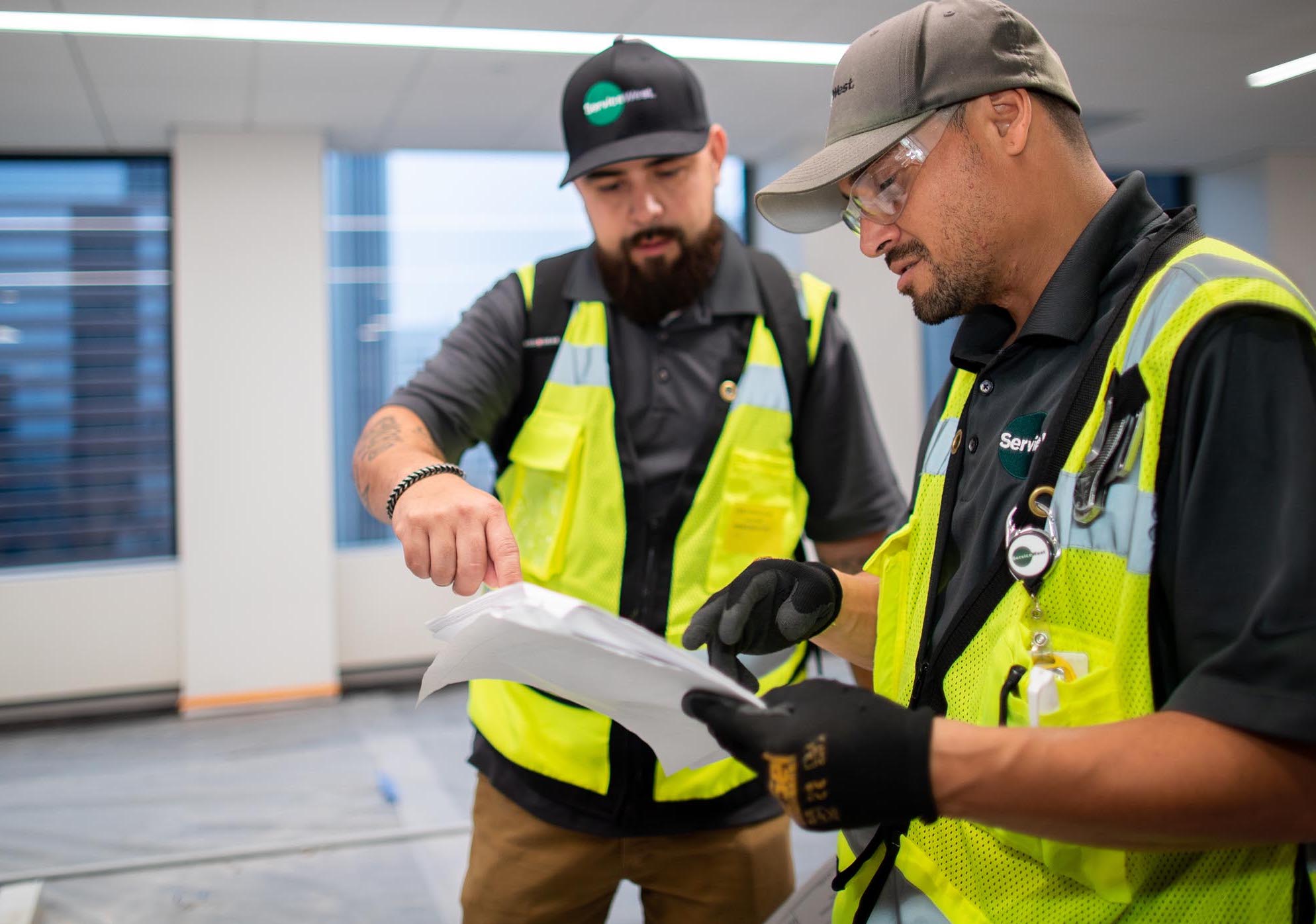There are basically two types of furniture installation and interior construction companies: those who plan and those who wing it. By plan, I mean those who have a formal planning process and methodology that is repeatable and works every time. Anything less is an invitation to chaos.
At Service West, we’ve had the privilege of working with some of the leading tech companies in the San Francisco Bay Area. They occupy enormous amounts of office space and are the largest consumers of office furniture in the market. When they have a major installation, they start planning months in advance. They want to be sure their installer has the capacity to execute a big, complex project perfectly. They’ll want to see proof points, like a successful track record on projects of a similar scale. They will also ask about your planning methodology – and you better have a good answer.
Our planning process begins with our custom-written ERP system called OrderWorks. It’s a comprehensive software tool we developed in-house specifically to quote, plan and execute projects. Because we have been through this process hundreds of times, we have built a database of millions of man-hours, so we know how much time and how many people each task will take. That enables us to plan and quote jobs with a high degree of accuracy.
We start scheduling the project the day it is awarded. We will typically have a pre-install planning meeting with all our internal stakeholders from the project team, and ideally including the customer. The project plan is an open book in our company. Everyone knows what we quoted, the project scope, and how that translates to allocated hours. Everyone understands the importance of meeting the completion date and delivering an exceptional customer experience.
We discuss roles and responsibilities with our customer. We need to be sure we’re getting the right product to the right place at the right time. We take a lean, just-in-time approach, so we only have as much product at the site as we plan to install in the next few days, with additional inventory stored in our 440,000 square-foot warehouse. Importantly, we try to anticipate any potential pitfalls we might run into. We get into nitty-gritty details like building access, street constraints, loading dock availability, parking spaces, access to elevators – little things that really matter when you arrive at a job site ready to work. We also visit job sites in advance to confirm site readiness.
On every project, we assign a field project manager (FPM) and lead, an experienced professional who can look at the job site on a Monday morning and envision what it’s going to look like by end of day Friday. Once the project gets underway, the lead holds a morning huddle every day with the team to make sure everyone knows what has to be accomplished that day. We break the project down into daily goals, because people work much better when they’re working toward a goal. Open lines of communication are absolutely critical. We’ve implemented a client portal with a standardized check-in/check-out format, so the client can see each day’s progress and the next day’s goals.
After the project, we have a post-install meeting where we discuss lessons learned. Did the plan make sense? Did we allot the time accurately? What worked and what could we do better next time?
Every company’s planning methodology is bound to be different. The important point is to have a planning discipline and be able to demonstrate it. It still surprises me that some companies will say “yes” to anything and buy business by cutting price, only to fail spectacularly on the job for inadequate resource allocation. It takes a lot of energy to think far in advance, but it will make your team more effective on the job and save your reputation as a reliable company.
Above all, we don’t want customers to worry about how a job is going. The cost of a job going badly is very high, but the strain of worrying about it is costly, too. Customers value certainty. That’s what good planning gives them.
—
Mark Vignoles is the founder and CEO of Service West, the West Coast leader in commercial furniture installation and interior construction – celebrating four decades in business. He is also a founding member of Facilities Services Network, an international best practices group that sets the standard in the commercial furniture and facility services industry.
